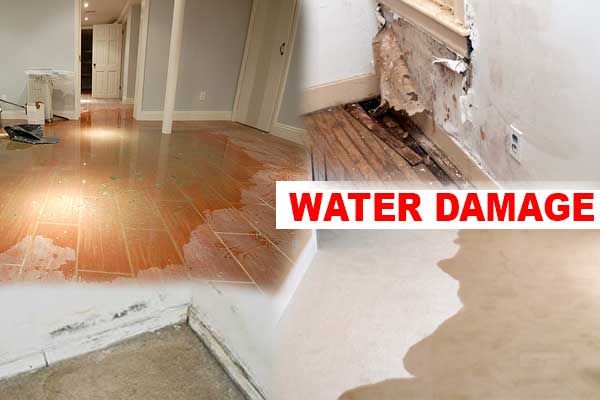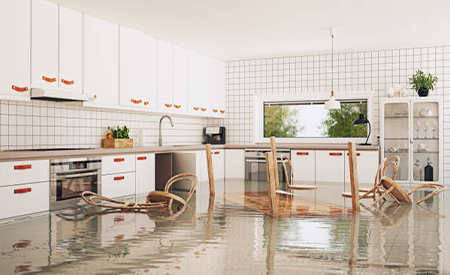Leading Water Mitigation Company Offering Fast and Efficient Solutions
Leading Water Mitigation Company Offering Fast and Efficient Solutions
Blog Article
The Process of Water Damage Cleanup: Guaranteeing Your Home Is Brought Back Efficiently
Water damage can be an overwhelming obstacle for home owners, demanding a structured and careful cleanup process to recover safety and performance. At first, a comprehensive analysis is important to determine the extent of the damage and determine the ideal remediation steps. Following this, effective water removal methods play a crucial duty in reducing more injury. The nuances of drying out, sterilizing, and eventual restoration are equally crucial and frequently forgotten. Recognizing these phases can make a substantial difference in the end result of your home's repair, motivating a closer consider what each action involves.
Analyzing the Damages
Upon finding water damage, the primary step is to extensively evaluate the degree of the effect. This first evaluation is important, as it assists determine the required steps for effective clean-up and remediation. Begin by inspecting the affected locations, including walls, ceilings, floors, and personal valuables, to determine the resource of the water intrusion, whether from flooding, leakages, or condensation.
Recording the damage is crucial for both insurance policy claims and preparing reconstruction efforts - damage restoration services. Usage photos and written notes to record the seriousness of the damage, noting any kind of damaged structural elements and materials. Pay unique focus to locations that may not be promptly noticeable, such as behind wall surfaces and under rugs, as hidden moisture can lead to further complications, consisting of mold and mildew growth
Furthermore, evaluate the timeline of the water exposure. The longer the products stay wet, the better the possibility for damage. Understanding the period of direct exposure will educate the seriousness of remediation initiatives. Eventually, an extensive assessment prepares for a successful water damages clean-up procedure, guaranteeing that all affected locations are dealt with effectively and extensively.
Water Extraction Methods

Professionals generally employ submersible pumps for bigger quantities of water, which can swiftly ease flooding in cellars or other affected locations. For smaller sized amounts, wet/dry vacuums are frequently used to remove recurring moisture from carpets and tough surface areas. Furthermore, making use of mobile extractors permits for targeted removal in confined rooms or locations with delicate products.
In circumstances of contaminated water, such as sewer or floodwater, advanced removal methods may include using biohazard devices to guarantee safety and conformity with health and wellness regulations. High-powered removal tools are essential in minimizing water retention in architectural materials, which can cause mold growth and architectural damage if not resolved immediately.
Ultimately, the efficiency of water removal methods plays a pivotal function in the total success of the water damage cleaning process, preparing for succeeding remediation initiatives.
Drying and Dehumidification
Once standing water has been properly extracted, the following critical phase in the water damages cleaning process is drying and dehumidification. This action is important to stop further damage and mold development, which can take place within 24 to 48 hours in moist settings.
To attain effective drying, specific devices such as industrial-grade air moving companies and dehumidifiers is used. Air movers circulate air across wet surface areas, boosting dissipation prices, while dehumidifiers reduce moisture degrees airborne, advertising a conducive atmosphere for drying. The combination of these devices makes certain that moisture is attracted out from floorings, home furnishings, and wall surfaces, enabling them to dry completely.
It is very important to keep an eye on the drying out process carefully. Professionals typically utilize wetness meters to evaluate the moisture content in various materials, ensuring that all influenced locations get to acceptable dryness degrees. This careful technique assists to avoid hidden moisture pockets that can cause structural damage or harmful mold and mildew growth.

Cleaning and Disinfecting
After the drying and dehumidification stage is complete, the following vital step in water damage cleanup is cleaning up and sterilizing the affected areas. This procedure is crucial to avoid the development of mold and mildew, bacteria, and other microorganisms that prosper in wet settings.
The cleansing phase generally includes eliminating any kind of particles, dust, and impurities from surface areas making use of specialized cleansing representatives. For hard surface areas, a mix of soap and water or business cleansing items is often employed. Soft products, such as furniture and carpetings, might need a lot more considerable cleansing techniques, including steam cleaning or deep removal strategies, to make certain thorough hygiene.

Sterilizing follows cleansing, using EPA-approved disinfectants to eliminate harmful microbes. This step is important, particularly in locations that may have entered into contact with floodwaters visit their website or sewer, as these resources can pose significant health threats.
Furthermore, it is important to resolve any type of remaining odors, which might require making use of smell neutralizers or advanced techniques like ozone therapy. Proper cleansing and disinfecting not just restore the safety and security and hygiene of your home yet likewise lay the groundwork for effective restoration and fixings in subsequent phases of the water damage clean-up procedure.
Remediation and Fixings

Once the assessment is full, repair efforts can start. This commonly entails repairing or replacing broken materials, ensuring that all job follows local building regulations and requirements. For example, if drywall has actually been jeopardized, it will require to be removed and changed with new product. Furthermore, flooring may require similar focus, depending on the level of water exposure.
It is essential to involve experienced click over here repair professionals during this procedure, as they have the know-how to handle complicated fixings efficiently. They can assist minimize possible future issues, such as mold growth or structural instability, hence making certain a habitable and safe living atmosphere. Eventually, efficient reconstruction and fixings recover the home's integrity and enhance its overall value.
Verdict
In verdict, the procedure of water damages cleaning is critical for restoring a home to its pre-damage condition. Each stage, from assessing the damage to implementing effective water removal strategies, adhered to by thorough drying out, disinfecting, and essential fixings, plays a crucial duty in making sure security and compliance with building criteria. Reliable execution of these steps not just alleviates instant damage yet additionally improves the long-term honesty and worth of the home.
Water damages can be a challenging difficulty for homeowners, requiring a thorough and organized cleaning procedure to restore security and performance. Inevitably, a comprehensive assessment lays the groundwork for an effective water damages cleaning procedure, ensuring that all affected areas are dealt with successfully and extensively.
Efficient water removal strategies are crucial in alleviating damages and stopping more issues following a water invasion event.In verdict, the process of click water damage cleanup is crucial for bring back a home to its pre-damage condition. Each phase, from evaluating the damage to implementing effective water removal strategies, adhered to by detailed drying, sanitizing, and necessary repairs, plays an important role in ensuring safety and security and conformity with building standards.
Report this page